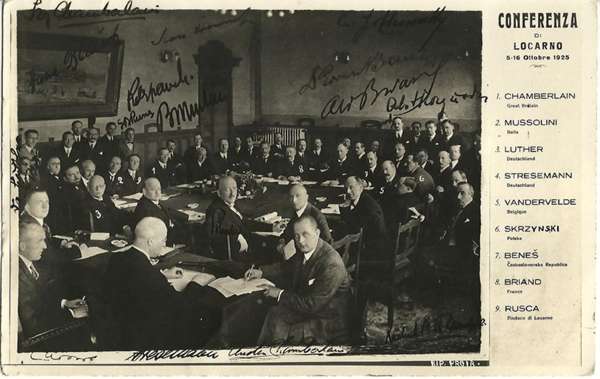
In 1919, at the end of World War I, the states defeated by the Entente powers had harsh peace terms imposed. Germany and its allies were declared responsible for the conflict. In addition to suffering territorial losses and the demilitarization of the Rhineland, the Weimar Republic was forced to pay war reparations. Tensions ensued which led to the French and Belgian occupation of the Rhineland. Subsequent diplomatic negotiations favored a rapprochement between nations and led
in 1925 to the signing of the Locarno Agreement. Germany freely accepted the western border, ensured by England and Italy. It also signed arbitration treaties with Belgium, France, Poland and Czechoslovakia. The "spirit of Locarno" characterized a period of greater collective security in Europe, within the framework of the League of Nations. The Locarno agreements were denounced by Germany in 1936, when the military occupied the Rhineland.